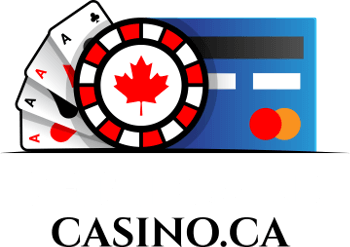Three Keys to a Strong Poker Playbook
Three important aspects of your online poker arsenal.
 Every strategic poker player has a bag of tricks. The bigger the bag, the most successful the poker player—usually. Knowing when to pull which trick out of the bag is the real key to success. And because online poker doesn’t give you the same range of poker tells to draw from, the bag is already limited.
Every strategic poker player has a bag of tricks. The bigger the bag, the most successful the poker player—usually. Knowing when to pull which trick out of the bag is the real key to success. And because online poker doesn’t give you the same range of poker tells to draw from, the bag is already limited.
Today we’re going to talk about three very important tactics that should make up any strong poker playbook, and when to use them.
Important Weapons in an Online Poker Arsenal
The strategies we’ll be describing include the employment of tight-aggressive gameplay, value betting against soft competition, and pulling off an effective bluff.
#1 Tight-Aggressive Poker
If you’re not familiar with the term “tight-aggressive”, you haven’t been playing nearly long enough. This is the poker strategy that most professional players employ when competing against equally-talented colleagues.
The term “tight” refers to how many hands you should be playing. A tight player will fold the vast majority of their starting hands. The rule of thumb is to fold 90% of the time, and only play the top 10% of starting hands. If you’re seeing more than 10% of the flops, you’re playing too many hands.
The term “aggressive” refers to how you play the hands that you don’t fold. When the starting cards are worthy of playing, bets and raises should be placed in large enough amounts to accomplish two things; 1) to get the majority (but not all) of the other players to fold, decreasing post-flop variance, and 2) to increase the value of the pot.
This is one of the most difficult but effective poker strategies to master. It takes incredible patience, discipline and exhaustive practice to recognize how best to proceed in different post-flop situations. The idea is to make sure skilled players understand that you mean business. If you don’t fold, you have a great hand, and they should back off and give you the pot unless their willing to pay a high price for it.
#2 Value Betting
Where a tight-aggressive strategy is best against highly experienced opponents, value betting is the more appropriate method against beginners and some intermediate players. These are the types that don’t understand the value of folding. They play too many hands, and because of this, you’ll experience a lot more variance.
Even when you have a great starting hand, you may find yourself up against several players willing to compete for the pot—players who could easily get a lucky draw to beat you on the river. To counter this, you can loosen up your game a bit, taking a wider range of starting hands into action. But at the same time, you need to maintain control of your chips stack.
To start, you have to do some observatory research before diving in here. Fold everything while you evaluate what types of hands your opponents are moving forward with, and how much they’re willing to risk on them. Once you’ve sized them up, consider the value of the hands you play, compared to their hand range. Then consider your hand value compared to how much they’re risking. Put it all together, and you can make precise value bets to either keep players in the pot, or drive them away, depending on the situation.
These players aren’t hard to outmaneuver, but due to the higher variance, you’re going to experience a lot more swings than you would in a tight game. Make sure you have a large enough bankroll to ride it out.
#3 The Effective Bluff
Bluffing is an important part of any good online poker playbook. The hard part is knowing when and how to bluff, based on who you’re competing against.
The very first rule is that you should very rarely bluff. Once you get caught bluffing, you’ll be tagged for it, making it much more difficult to do again. All other rules should be based on your competition.
If you’re competing against serious players (and probably using a tight-aggressive poker stance), a rare bluff can be very effective. They should already know to be wary of you, since you play only the best hands. However, since these are skilled players, you also have to be careful of getting called, because if that happens, they probably have a good hand.
For this reason, it’s better to go with the semi-bluff against skilled players. A semi-bluff is when you have a hand that isn’t worth much now, but could become something great. A partial straight, or the high Ace to a full flop of same-suit cards. This way, you still have a chance to come back and beat them, and you won’t be tagged as a straight-up bluffer if it fails.
If you’re competing against weak players who don’t appreciate the value of folding, you’ll need to take a different approach. In this case, you want to play them long enough to put them on a range of hands. If someone is taking way more weak hands into the game than strong ones, then all you have to do is beat their average weak hand. If you can do that, you can place the big bluff bet and not worry too much about them calling it.
Party Poker Canada, the most trusted Canadian gaming destination, and our editor’s pick for two years, now offers a wide variety of popular card games: from Texas Hold’em, to Omaha, to 7 card stud, to Limit Hold’em and even casino games like blackjack. Play for fun, for free, or play for real, for real money that is ! Our editorial pick for 2023.

www.PartyPoker.com
 (Reminder to Gamble Responsibly)
(Reminder to Gamble Responsibly)




